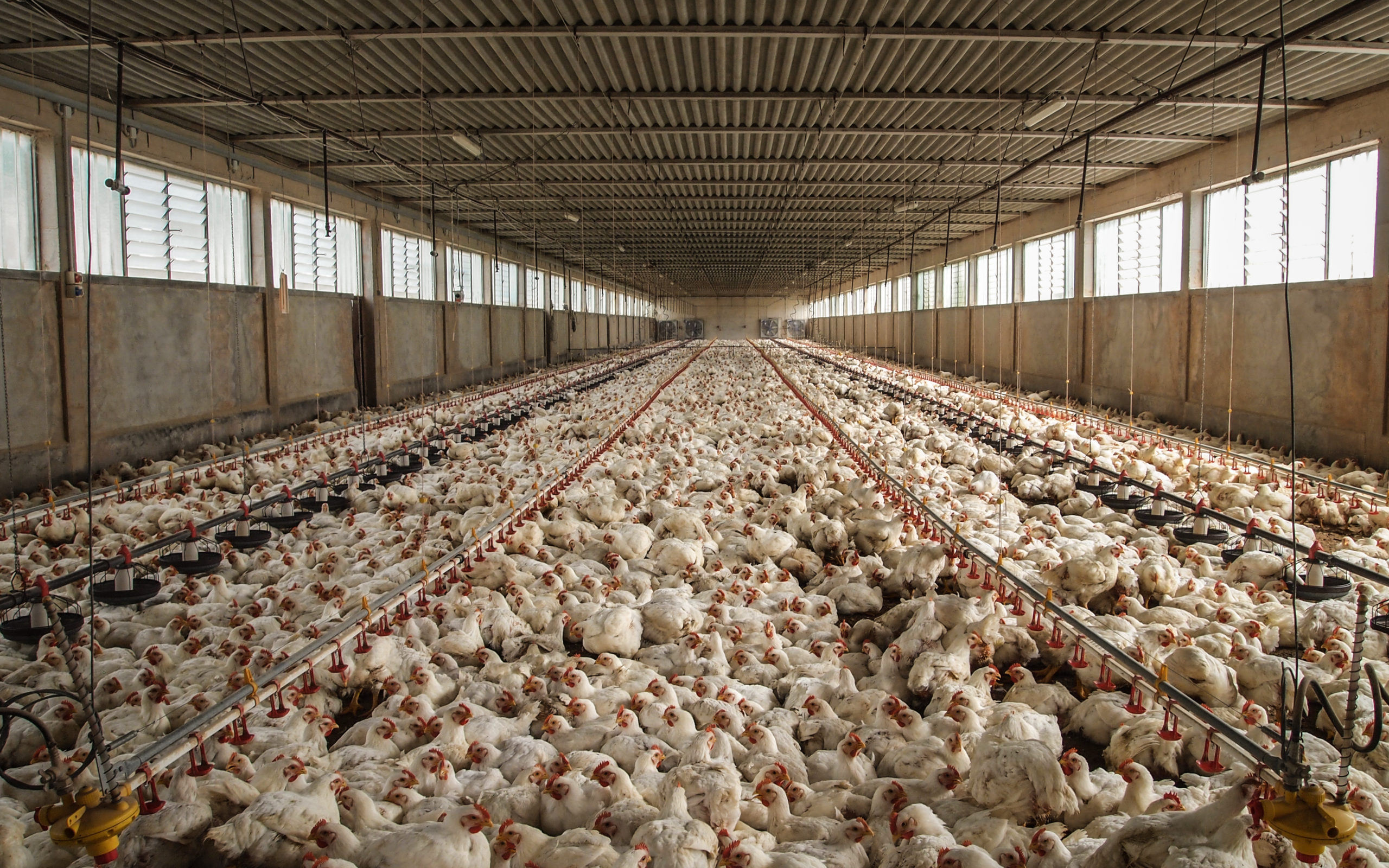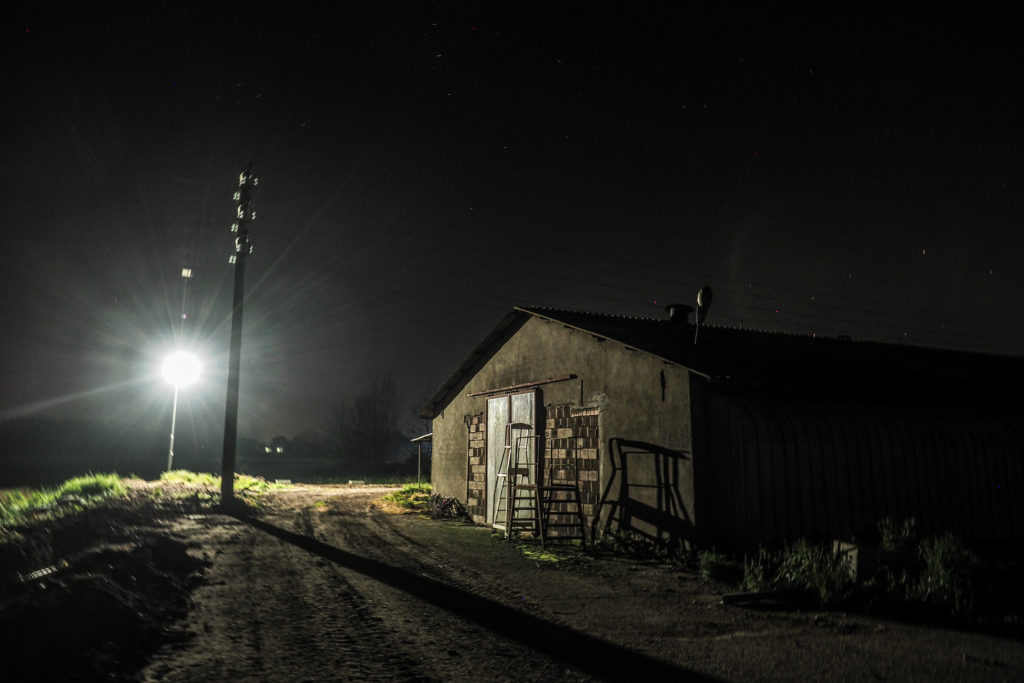
Northern Italy, April 2018. Outside an egg laying hen factory farm in the Northern Italian countryside.
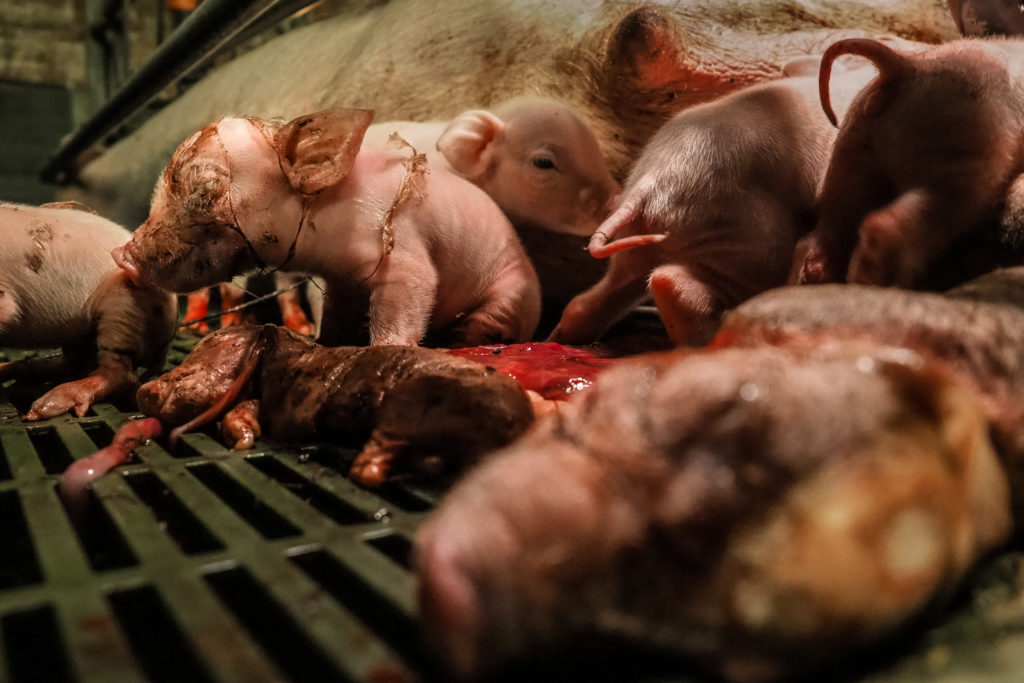
OLYMPUS DIGITAL CAMERA 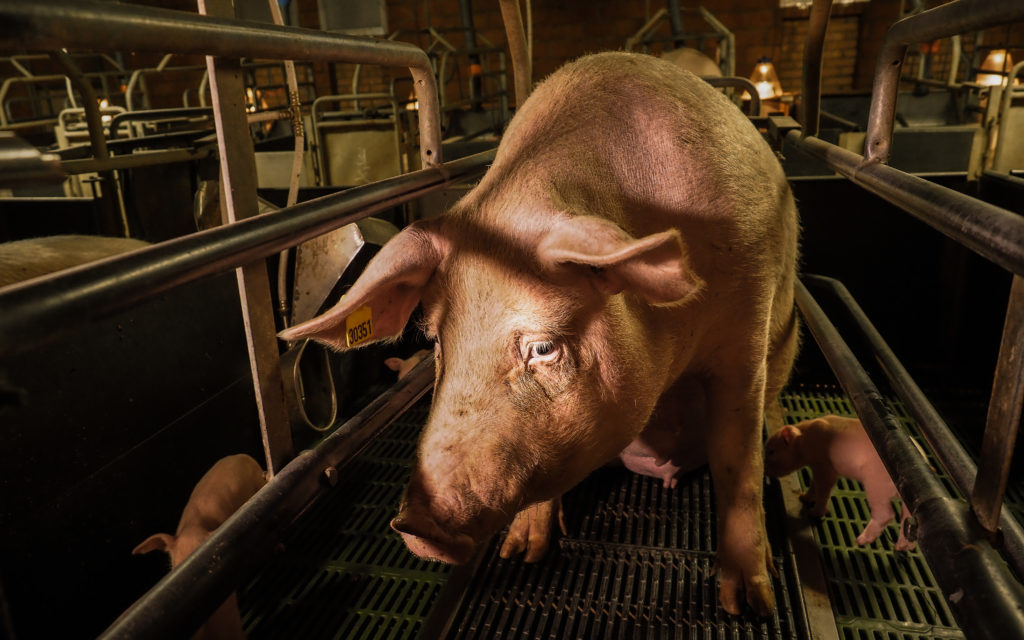
OLYMPUS DIGITAL CAMERA 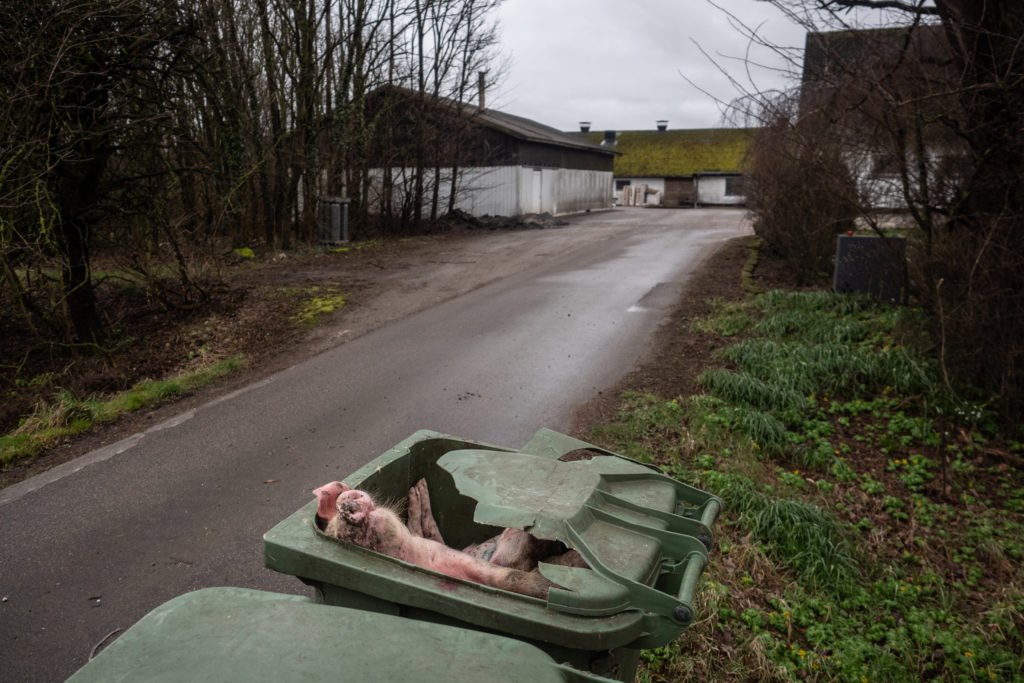
Tingerup, Denmark, March 2019. The body of a dead piglet sticks out of a broken bin outside one of the industrial pig farms affecting the small rural villages in the area. More bodies of dead piglets can be seen inside the bin through the broken lid, dumped as trash on the side of the road. 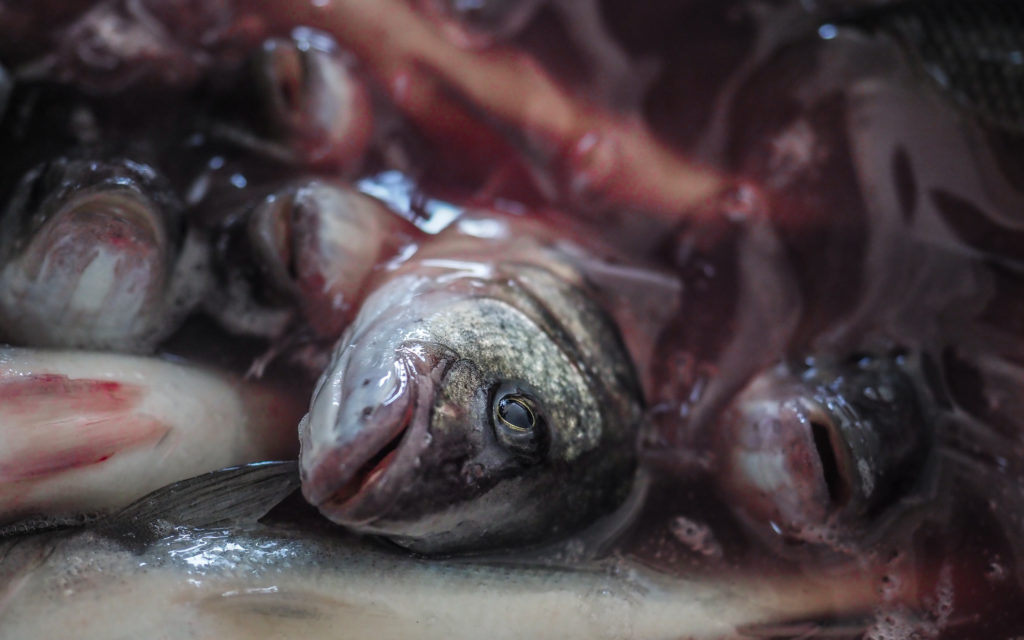
OLYMPUS DIGITAL CAMERA 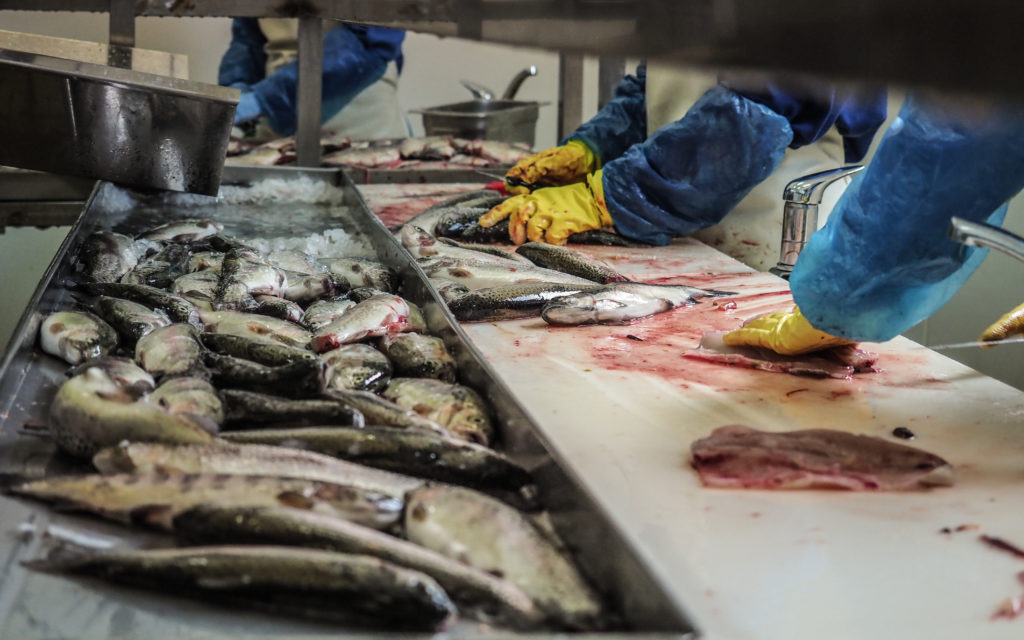
OLYMPUS DIGITAL CAMERA 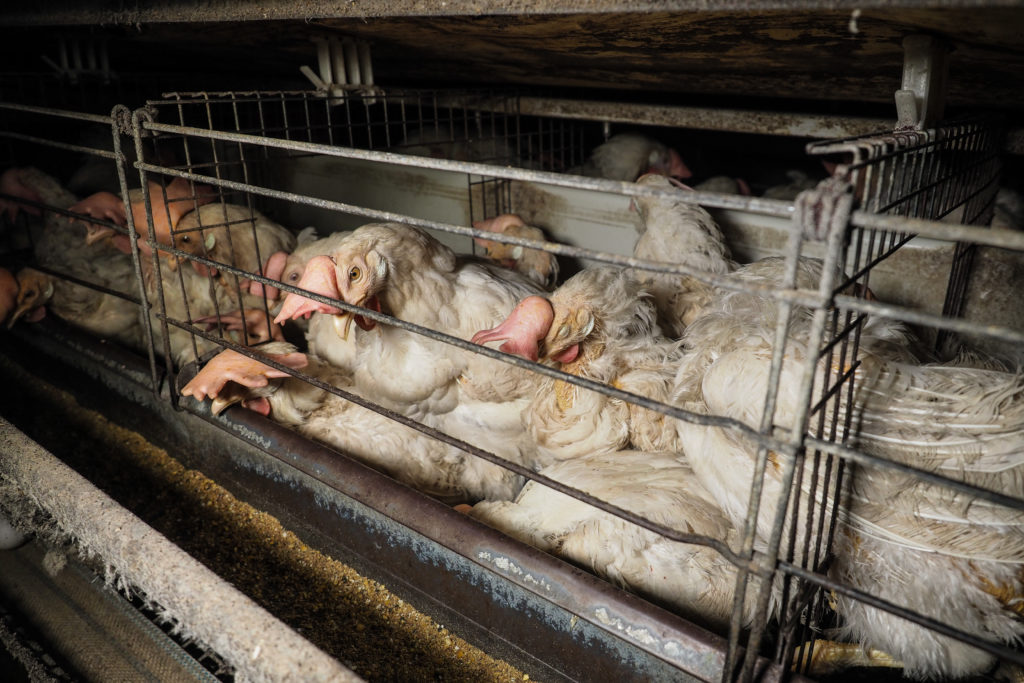
Northern Italy, April 2018. Caged chickens have very little room to move inside an egg laying hen factory farm in Northern Italy. The farm was found in exceptionally horrific conditions, covered in dirt, spiderwebs, excrements, rotten bodies and massively infested by blood sucking parasites everywhere. 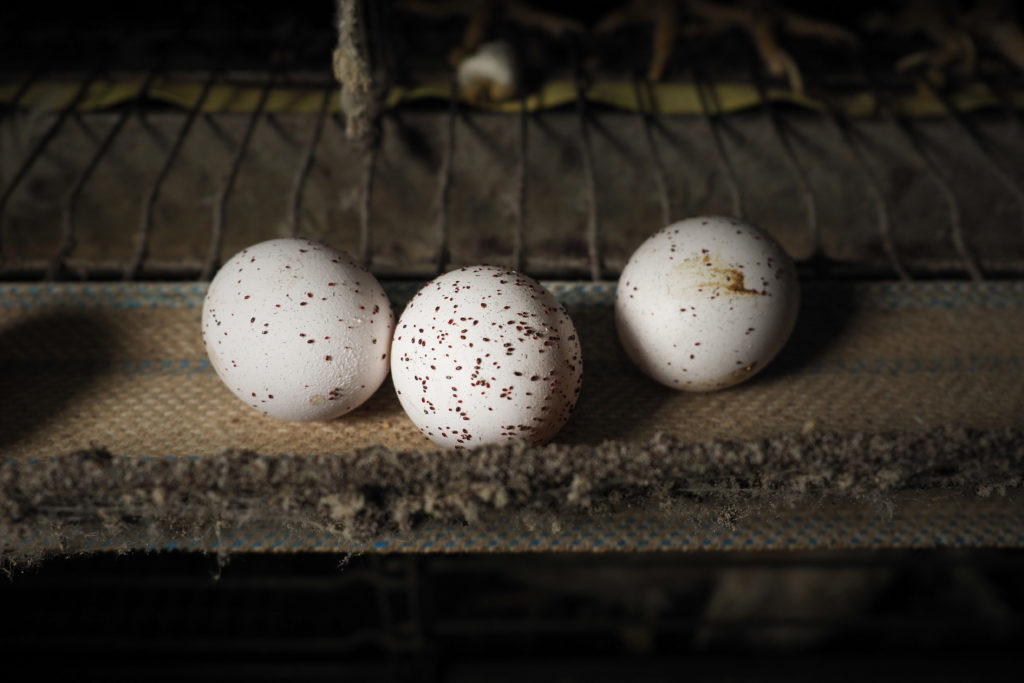
Northern Italy, April 2018. Detail of eggs inside an egg laying hen factory farm in Northern Italy. The farm was found in exceptionally horrific conditions, covered in dirt, spiderwebs, excrements, rotten bodies and massively infested by blood sucking parasites everywhere. The eggs too are visibly covered in those parasites. 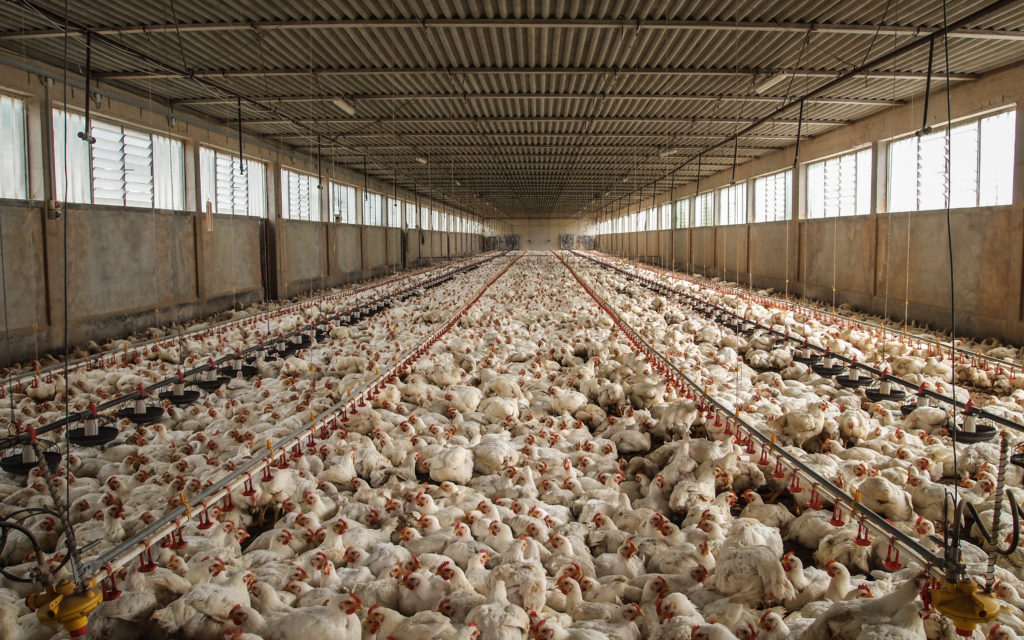
OLYMPUS DIGITAL CAMERA 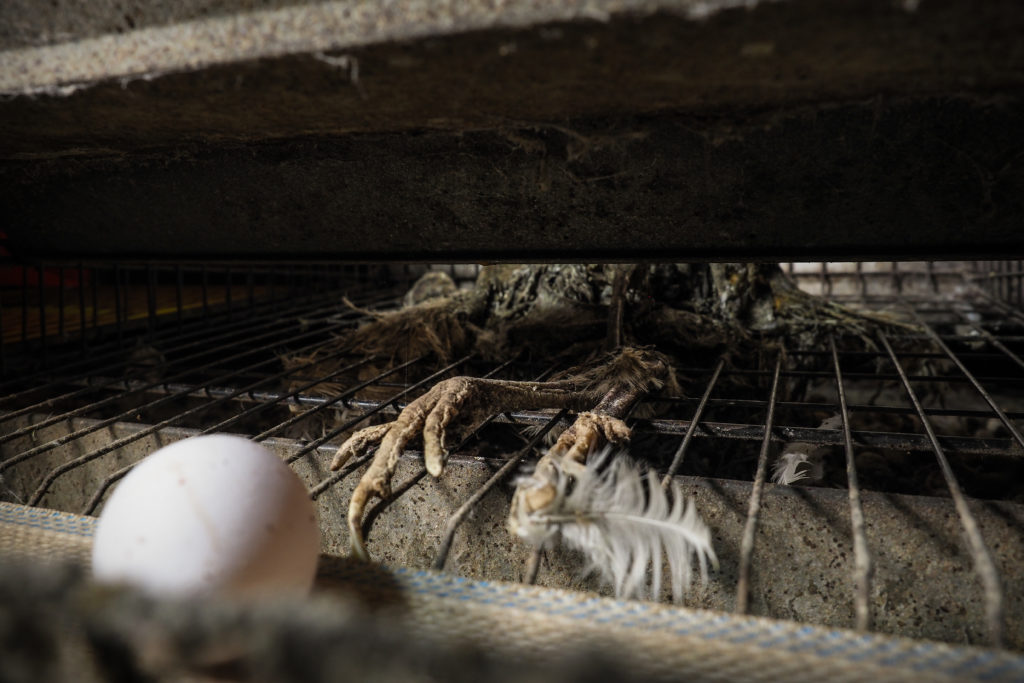
Northern Italy, April 2018. A rotten dead chicken inside an egg laying hen factory farm in Northern Italy. The farm was found in exceptionally horrific conditions, covered in dirt, spiderwebs, excrements, rotten bodies and massively infested by blood sucking parasites everywhere.
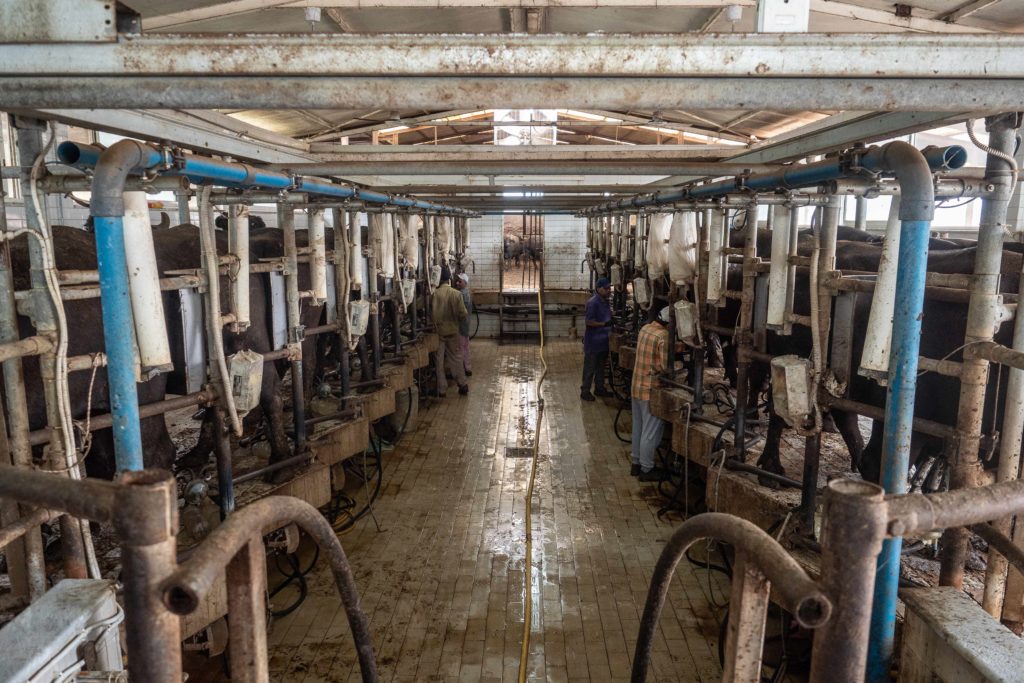
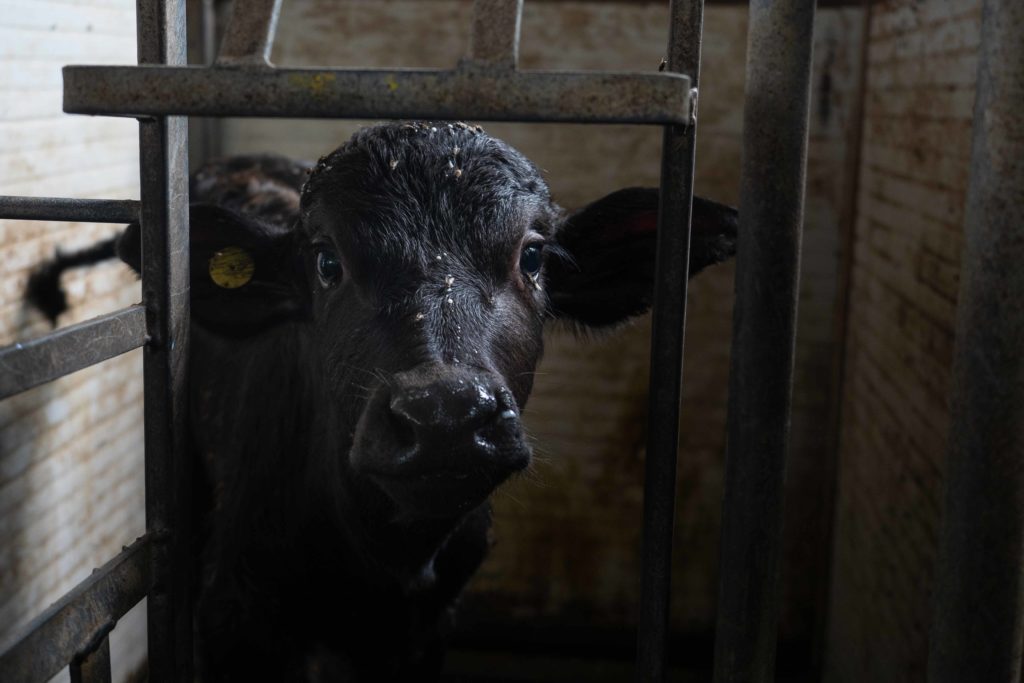
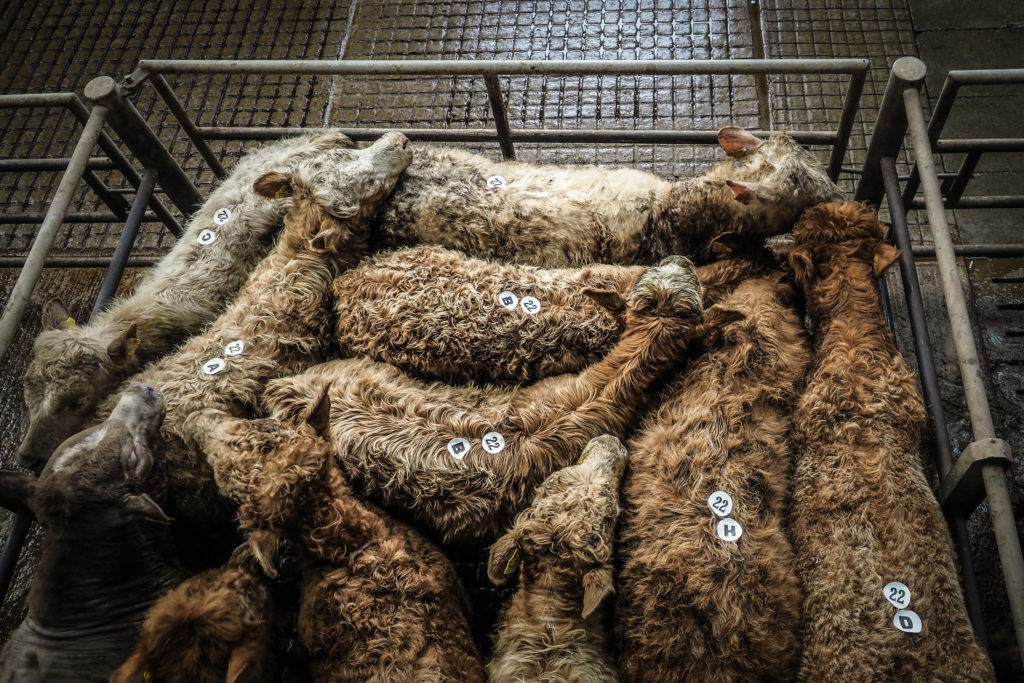
OLYMPUS DIGITAL CAMERA 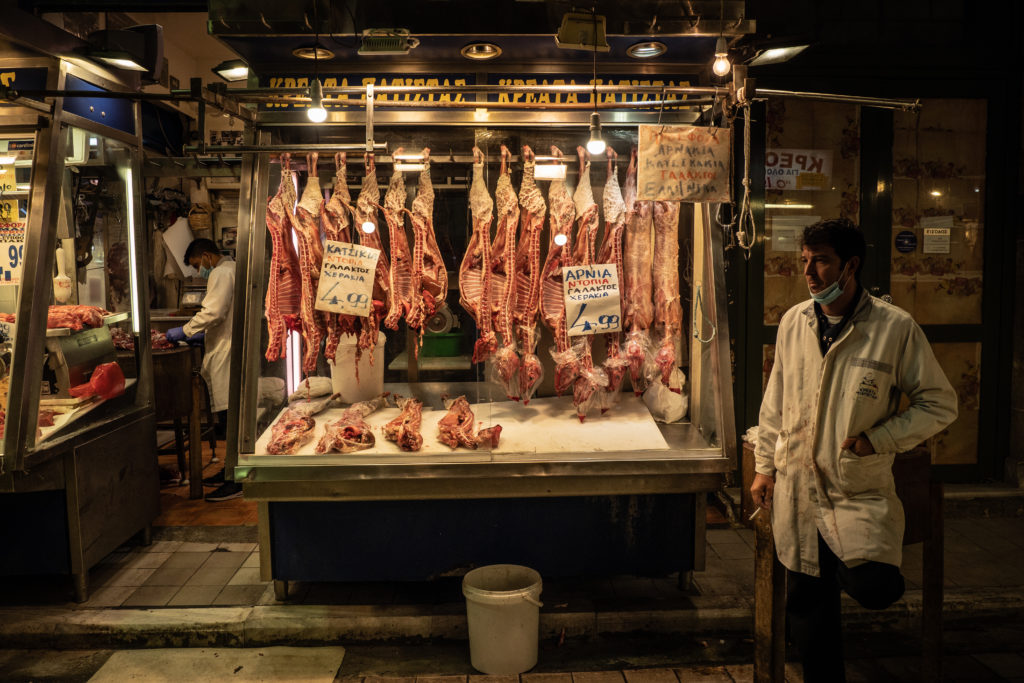
OLYMPUS DIGITAL CAMERA
- How did you start working on the food industry and animal welfare issues and why ?
Starting to work on the food industry has been the inevitable outcome of a longer journey. I embraced photography during my childhood, coming from a family of photographers. After becoming aware of animal oppression as a teenager, I joined political and animal rights groups which brought me to learn a lot more and witness directly the animal agriculture industry on the field. I subsequently gained an educational background in photojournalism and started working in the areas of documentary photography and investigative journalism. My areas of interest expanded to other issues such as social, political, anthropological and environmental topics, but documenting animal abuse remains crucial for me. Animal agriculture is one of the main systems of oppression (animal and human) and environmental damage: we need immediate change. - Did it change your relation to food since that?
Since I have been avoiding animal products for more than ten years, the connection happened in the opposite order: I first changed my relation to food and then became interested in addressing the food industry in my work. However, my professional experience lead me to learn a lot more about the behind the scene of animal farming than I imagined, as there are so many aspects that are not talked about. “Normal” micro practices, animal transport, the business behind the feed for farmed animals, the fishing industry, environmental damage, abuse of human rights, are just a few of the hidden things that I found out through my work. These years of research and witness strengthened my belief that it’s important to be aware of what we consume and that oppression must not be financed. My relation to food became closer, I stopped seeing the act of eating as a repetitive passive activity but as a way to connect to the environment, be more creative, and make positively impactful choices.
- in some of your pictures it’s like animals are looking at us, what are they telling us?
It always impressed me how the photograph of one single animal looking at a camera completely matches what in photography we call the definition of a portrait. It’s the representation of an individual and, with its facial expression and emotions, their story in a system where the animals are barely numbers. What I read in their eyes is fear, suffering and strength. I think that if they could tell us something, they’d be fighting for their right to be themselves and live in freedom.
- What are the reactions of people in the industry, have you already been threatened for your work?
Through my work I am not interested in targeting one single business or person. We need a radical change so it’s the system that needs to be exposed and attacked, and the power of consumers – or non consumers – that needs to be highlighted. Investigative work in the area of animal farming is becoming more and more known though, so in the years I’ve noticed and experienced an increase of defensiveness of aggressiveness from the farmers. To me, that’s the proof that they know the systematic abuse they perpetrate should stay hidden for their benefit. One of the accusations that most impressed me was when I got once told that selectively documenting the worst in an industry gives a bad and unrealistic picture of the truth. If on one hand journalism must surely be faithful to the whole context, in that farmer’s statement I read minimization of abuse and gaslighting: this is what should be considered proper manipulation of reality. - Have you seen some changes since you started working on those subjects?
Capacity and accessibility to change are unfortunately different for different people in our white Western dominated world. In general, in the privileged society that I’m part of, things are for sure changing, also thanks to documentation I think.
People are becoming aware of animal abuse and its intersectional implications, they’re understanding the impact of animal agriculture on the environment, human rights abuse and climate damage. Businesses are offering more and more plant based foods. The pandemic we are going through is highlighting how our relation to animals is the reason for the current emergency and how it has been the cause of other epidemics before, as well as how animal agriculture is unsafe for workers.
I hope that capitalism and the comfort of the few through the oppression of the many will decline more and more, and that we use our privilege to perform individual political responsibility towards our communities.
- What is your vision regarding food sovereignty actually in the field you’ve been working on?
It is clear how the monopoly of the food industry from big producers and political class, which is the current corporate food regime, only causes harm. I think that we, as consumers, have been educated into complete de responsabilisation and into neglect of our power in the food economy. However, in a world where animal agriculture is one of the main reasons for pollution, climate damage, migration, and destruction of continents and communities, eating has become necessarily a political act. What we choose to eat has more impact than what we think. My vision on food sovereignty is the reappropriation of the production and consumption of foods, and the recognition of such practices as radical active acts. This means not delegating anymore the farming of animals to big production machineries, detached from our environment and experiences. We need a bigger turn in the direction of a more plant based food industry, sustainable and actively participated by all, if we want to protect the planet and preserve our communities with their values.

